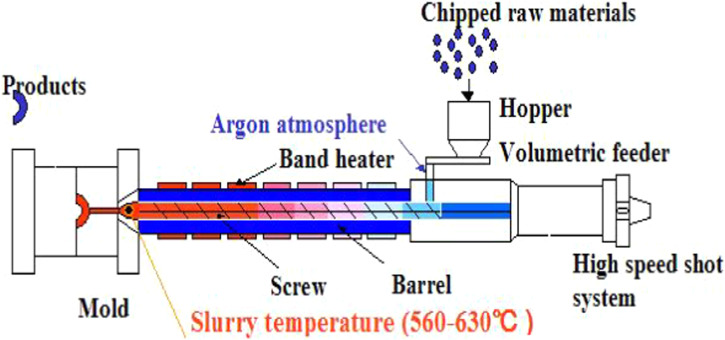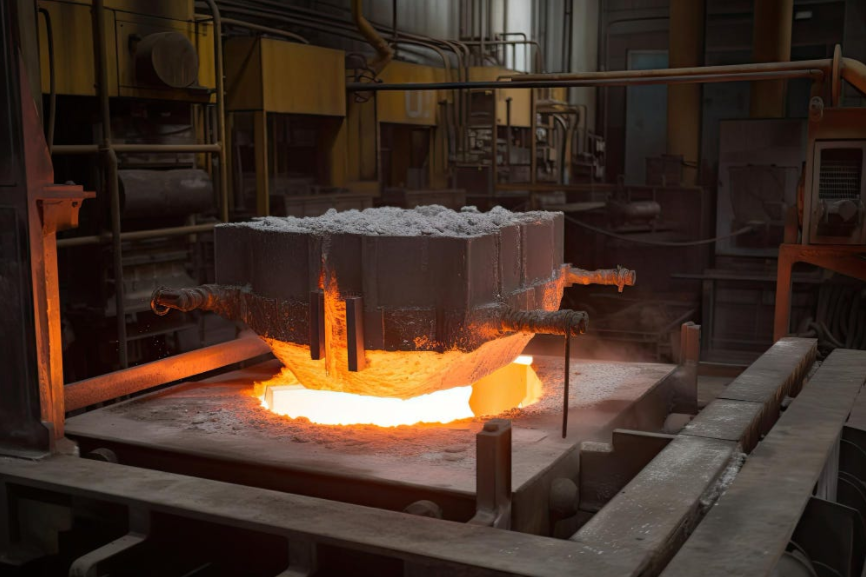The aviation industry is constantly evolving, with technology playing a vital role in its development. One of the crucial aspects that contribute to the efficiency and safety of aircraft is the manufacturing of high-precision components. These components are responsible for various functions, including propulsion, control systems, and structural integrity. Among the various manufacturing processes used in the aviation industry, aerospace casting stands out as a key technique for producing high-precision components.
Aerospace casting is a specialized process that involves the production of complex metal components through the use of molds. This process allows for the creation of intricate shapes and designs that are critical for the functioning of an aircraft. From engine parts to landing gear components, aerospace casting provides the industry with the ability to manufacture high-performance components that meet the strict requirements of the aviation industry.
The use of aerospace casting in the aviation industry offers numerous advantages. First and foremost, it allows for the production of components with high dimensional accuracy. The molds used in the casting process are designed with precision, ensuring that the final product meets the exact specifications required. This level of accuracy is crucial in the aviation industry, where even the smallest deviation can have severe consequences.
Additionally, aerospace casting enables the creation of components with complex geometries. The molds used in the casting process can be designed to accommodate intricate shapes and designs that are difficult to achieve through other manufacturing processes. This capability is particularly valuable in the aviation industry, where components often need to fit into limited spaces and work in harmony with other parts of the aircraft.
Furthermore, aerospace casting allows for the production of components with superior mechanical properties. The casting process involves the use of advanced alloys that offer excellent strength, heat resistance, and corrosion resistance. These properties are crucial for components that are subjected to extreme conditions and stresses, such as those found in aircraft engines. Aerospace casting ensures that these components can withstand the demands of the aviation industry.
The aerospace casting process itself involves several steps. It begins with the design and creation of the mold, which is typically made from materials such as sand, ceramic, or metal. The mold is then filled with molten metal, which is allowed to solidify and take the shape of the mold. Once the metal has solidified, the mold is removed, and the component undergoes various finishing processes, such as heat treatment and machining, to achieve the desired specifications.
Despite its numerous advantages, aerospace casting does have its challenges. One of the main challenges is the need for skilled professionals with expertise in the casting process. The design and creation of the molds require precision and attention to detail, which can only be achieved by experienced professionals. Additionally, the casting process itself requires proper control of factors such as temperature and speed, which can significantly affect the quality of the final product.

To address these challenges, the aviation industry invests heavily in research and development to improve the aerospace casting process. Advanced technologies, such as computer-aided design and simulation, are used to optimize the design of the molds and predict the behavior of the molten metal. This allows for the identification of potential issues and the implementation of corrective measures before the casting process begins.
Aerospace casting is a crucial technique in the manufacturing of high-precision components in the aviation industry. It allows for the production of components with high dimensional accuracy, complex geometries, and superior mechanical properties. While it presents challenges that require skilled professionals and careful control, the industry continues to invest in research and development to improve the process. Aerospace casting plays a vital role in ensuring the efficiency, reliability, and safety of aircraft, making it a key factor in the advancement of the aviation industry.
-

- OEM die casting service metal components of macbook middle
-

- Mangensium álfelgur deyja-steypu Thixomolding málmhlutar
-

- Magnesíum álfelgur þikómótandi deyja-steypu UAV hlutar
-

- Magnesíum álfelgur Thixomolding rafmagnsdeigshús
-

- Sérsniðin verksmiðja Kína Bmx Cycles Road Sport Kids Reiðhjól 12 16 18 20 tommur Cycle Mtb fyrir krakka 6-10 ára
-

- Magnesíum ál stífur gaffal fyrir reiðhjól - sérsniðnir málmhlutar úr steypu

 0086-750-5616188
0086-750-5616188 +86 13392089688
+86 13392089688 sales@zhongmei-tech.com
sales@zhongmei-tech.com







